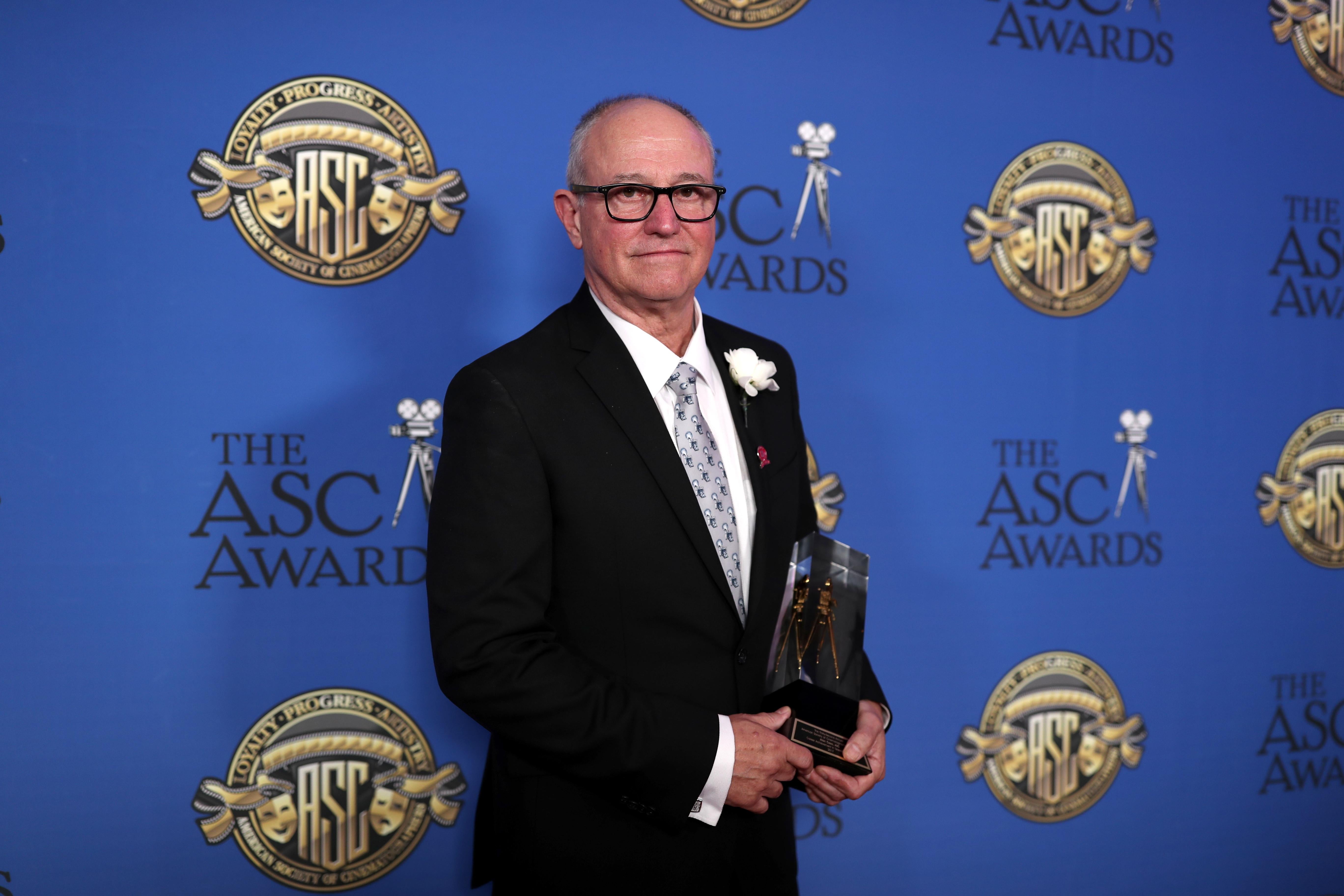Alan Caso made one of the best awards acceptance speeches of the year Saturday, when he received the American Society of Cinematographers’ Career Achievement in Television Award. Caso, probably best known for his influential work on Six Feet Under, was given the award at a ceremony held at the Ray Dolby Ballroom in Hollywood. He took the opportunity to speak about Hollywood’s diversity problem and—and here’s the rare part—his own complicity in it.
Usually, political awards acceptance speeches follow a familiar outline: “I, state your name, am unhappy about something someone else is doing, and would like to draw attention to it in the hope that people watching will help change the situation.” There’s nothing wrong with that format, which can be a very effective use of the bully pulpit. But Caso’s speech was different: he took the occasion of his career achievement award to talk about something he himself had done in the past that he felt ashamed of now: working with, in his words, “an almost exclusively white and male crew.” According to Caso, it was the election of Donald Trump that opened his eyes, not because of anything the president said or did, but because others reacted with skepticism when he was outraged, given the demographic facts of his industry and his own career. “I have no excuse,” Caso said, marking perhaps the first time that particular phrase has made it into the acceptance speech for a lifetime achievement award.
And while Caso did rally the crowd to join him in working for greater diversity in Hollywood, the heart of his speech was a personal commitment to action. “I have sworn to myself that I will spend the remaining years of my career mentoring and kicking some doors in for aspiring cinematographers who don’t look like me,” Caso said. He received a standing ovation.
Punisher: War Zone director Lexi Alexander, who directed an episode of American Gothic that Caso shot, posted video of the cinematographer’s speech on Twitter:
Here’s the complete text of Caso’s speech:
I’d like to thank my family, friends, and colleagues for supporting me all these years of my career. I’d like to thank the ASC for this career achievement award. Like most of my peers, I much prefer providing the limelight rather than being in it. But a friend of mine told me that anyone who has been given the privilege of being given a stage has the responsibility to use it wisely, so I’d like to take this moment and talk about something I have not achieved in my career.
It’s something I’m embarrassed to say I didn’t become aware of until—well, until America voted a demagogue into the White House. But I’ve found myself ashamed and appalled, especially while working abroad or here with talent from other countries, by the blatant racism and sexism on display. I happily joined the choir of outrage about the Neanderthal ways in which this administration wants to send this country back. But it only took a couple of people rolling their eyes at my outrage that I realized how much of a hypocrite I was, complaining about racism and sexism while surrounding myself with an almost exclusively white and male crew.
I have no excuse, nor can I justify the many years I spent in a bubble worrying about only myself. Now, this isn’t an easy career for anybody. You book one job, and before that job even ends, you start worrying if you can book another one, so you can cover your kids’ insane tuition bills. But if that’s the pressure I felt throughout my entire career as a white man, I can’t even imagine what it’s like to try and have a career as a woman, a person of color, a woman of color.
I have sworn to myself that I will spend the remaining years of my career mentoring and kicking some doors in for aspiring cinematographers who don’t look like me. I started this effort last year, and I can tell you, those doors we installed over the years are many, solid, and not easily moved. And I won’t be able to do it alone, so I’m appealing to my peers and my colleagues in this room tonight. You can avoid a moment like I’m having here, standing on a stage admitting you were blissfully asleep in a bubble of your own privilege for the majority of your career. Let’s not only kick in some doors for members of minority groups, let’s uninstall them for good. Let’s surround ourselves with a crew who looks like the real world, not like an Ivy League fraternity. Because I promise you, after 30 years in this industry, this I know for sure: it’s not a zero-sum game. There’s room for all of us. Thank you very much.
